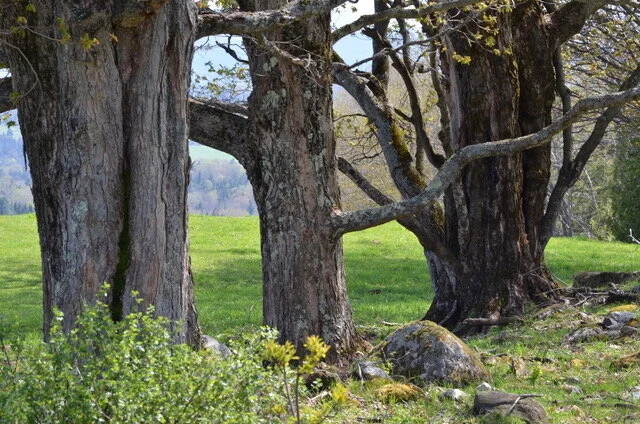WITHOUT YOUR CONSENT
(An Edited Excerpt from Beyond Denial)
Last Tuesday, I drove my seventeen-year-old daughter, Emma, to start her junior year at boarding school (St. Paul’s, in Concord, New Hampshire). Although she’ll always be my child, she seems suddenly, astonishingly, much more young woman than child.
Something intriguing happened when I helped her move into the dorm. Emma’s mom had bought her a poster to help decorate the new room. It’s a photo of Eleanor Roosevelt, showing her trenchant comment: “No one can make you feel inferior without your consent.” When I handed this to Emma, she lit up. Not only did she like it for her wall, but she told me that the quote itself was a favorite of hers. She even said she had been thinking about telling us that if we saw anything with that quote on it, she’d like us to get it for her. But she had never in fact said that to either of us, as her mom later confirmed.
That was an interesting coincidence (getting me wondering about possible telepathy between mother and daughter). And I was quite pleased to hear my offspring express appreciation for such wise words and the remarkable woman who said them. That interaction about the poster also triggered a memory in me from Emma’s infancy that I remembered writing about in my journal (a practice I have maintained since college). One night, in 1985, after singing baby Emma to sleep, I had a little epiphany. I suddenly had the awareness that this cooing, crying, consuming, diaper-filling, barely differentiated lump of life would one day be a distinct person, a unique individual, an adult woman. I soon set off upon some mental meanderings about what kind of person she might become, and what kind of people she might come to admire.
After driving home from Emma’s school last Tuesday, and with this memory in mind, I started searching out my old journals. What I found (in my entry for February 9, 1985) included these words: “Who will she become? Will she have positive exemplars that aid her development? What images of woman-ness will she be drawn to as she grows up? And what kind of role models would I like her to admire? Some names that first come to mind for me are: Susan B. Anthony, Emily Dickinson, Eleanor Roosevelt, Mother Teresa, and Joan Baez.
“But those are my names. Who will be her heroes? Will they be names known to me or unknown? Will they be people I value more or less? I want to expose her to the best, but I also want to avoid imposing my own values on her too much. Her mother and I can show her a hundred female—and male—exemplars, but she will have to find her own kindred spirits, whether from our lists or from her own. I’ll want to lead her, but she’ll mainly, eventually have to lead herself. It’s just a baby I see in that crib tonight, but someday soon she’ll walk and talk. She’ll make choices. She’ll stand for things. I want life for you, Emma, full rich life. What will you become?”
That question from my 1985 self and journal is now starting to be answered here in 2001. After that coincidence with the poster in her new dorm room this week, I asked Emma to do a quick free association of some people, women especially, whom she admires. Beyond Eleanor Roosevelt she mentioned Rosa Parks, Joan of Arc, and Princess Diana. Mrs. Roosevelt was the only name on both her list and mine. But that’s not a bad name to be on both lists, is it?
The lists themselves are far from finished—mine as much as hers. But as for who she will become, and what she will evolve into, I’m smiling at what I see so far. I’m delighted that she resonates with those words on the poster. I’m glad she “gets it” that no one can make her feel—or believe, or choose, or become—anything at all without a unique, personal “yes” from the inner wellspring that waters her own being.
